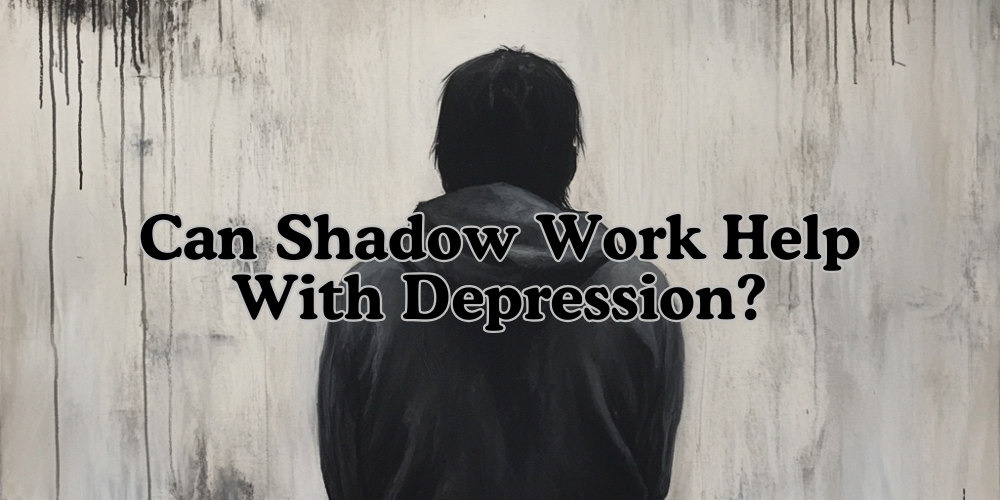
Can Shadow Work Help With Depression?
Share
Depression often feels like carrying a heavy weight that colors every experience with shades of gray. While clinical depression requires proper medical and therapeutic support, many people are exploring complementary approaches to support their healing journey. Shadow work—the practice of examining and integrating the denied aspects of ourselves—has emerged as one such approach that may offer valuable insights for those struggling with depression.
At its core, depression frequently involves a disconnection from parts of ourselves. We may have learned to suppress certain emotions, desires, or aspects of our personality that felt unsafe to express. Over time, this suppression requires tremendous energy to maintain and can contribute to the exhaustion and emptiness characteristic of depression.
Shadow work offers a pathway to reconnect with these disowned parts. By gently exploring what we've pushed into the unconscious, we can begin releasing the energy that's been locked away in maintaining these separations. This integration process doesn't cure depression, but it may help reduce some of its underlying tensions.
One way shadow work might help is by addressing self-judgment. Depression often involves harsh inner criticism and unrelenting standards. Through shadow work, we can identify the origins of these punishing voices and begin relating to ourselves with greater compassion. As we recognize that many of our "unacceptable" qualities are simply part of being human, the grip of shame may gradually loosen.
Shadow work can also illuminate hidden grief that fuels depression. Many of us learn early to hide our sadness and vulnerability. Through gentle exploration of our shadow, we might discover unprocessed losses—whether tangible losses like relationships or opportunities, or more subtle losses like abandoned dreams or aspects of identity. Acknowledging and honoring this grief can be profoundly healing.
For some people, depression manifests as a sense of meaninglessness. Shadow work can help by reconnecting us with authentic desires and values that may have been suppressed. When we reclaim disowned aspects of ourselves, we often discover sources of vitality and purpose that were hidden beneath the depression.
⚠️ It's important to note that shadow work isn't a standalone treatment for clinical depression. It works best as part of a comprehensive approach that might include therapy, medication when appropriate, lifestyle factors like nutrition and exercise, and social support. Shadow work can be challenging, potentially triggering difficult emotions, so it's advisable to undertake it with professional guidance if you're struggling with depression.
The journey through depression is rarely linear, and shadow work reflects this complexity. Rather than offering a quick fix, it invites a gradual process of self-discovery and integration. For many people, this journey becomes not just about alleviating symptoms but about moving toward a more authentic and fully-lived life.
By bringing awareness to the shadows that contribute to our depression—whether they're unacknowledged emotions, disowned needs, or suppressed aspects of our identity—we can begin transforming our relationship with these elements from rejection to acceptance. And in that acceptance often lies the first step toward healing.


